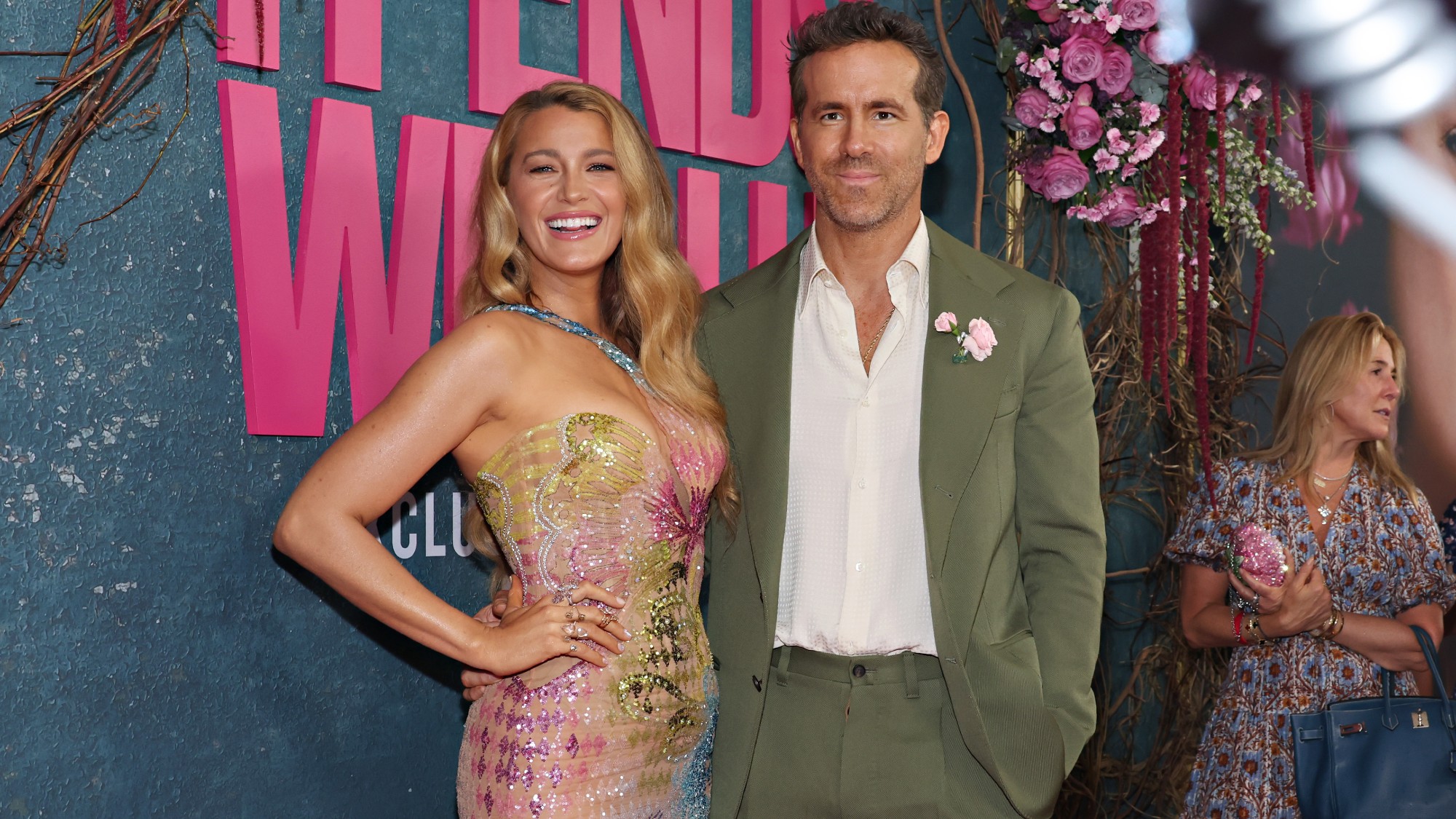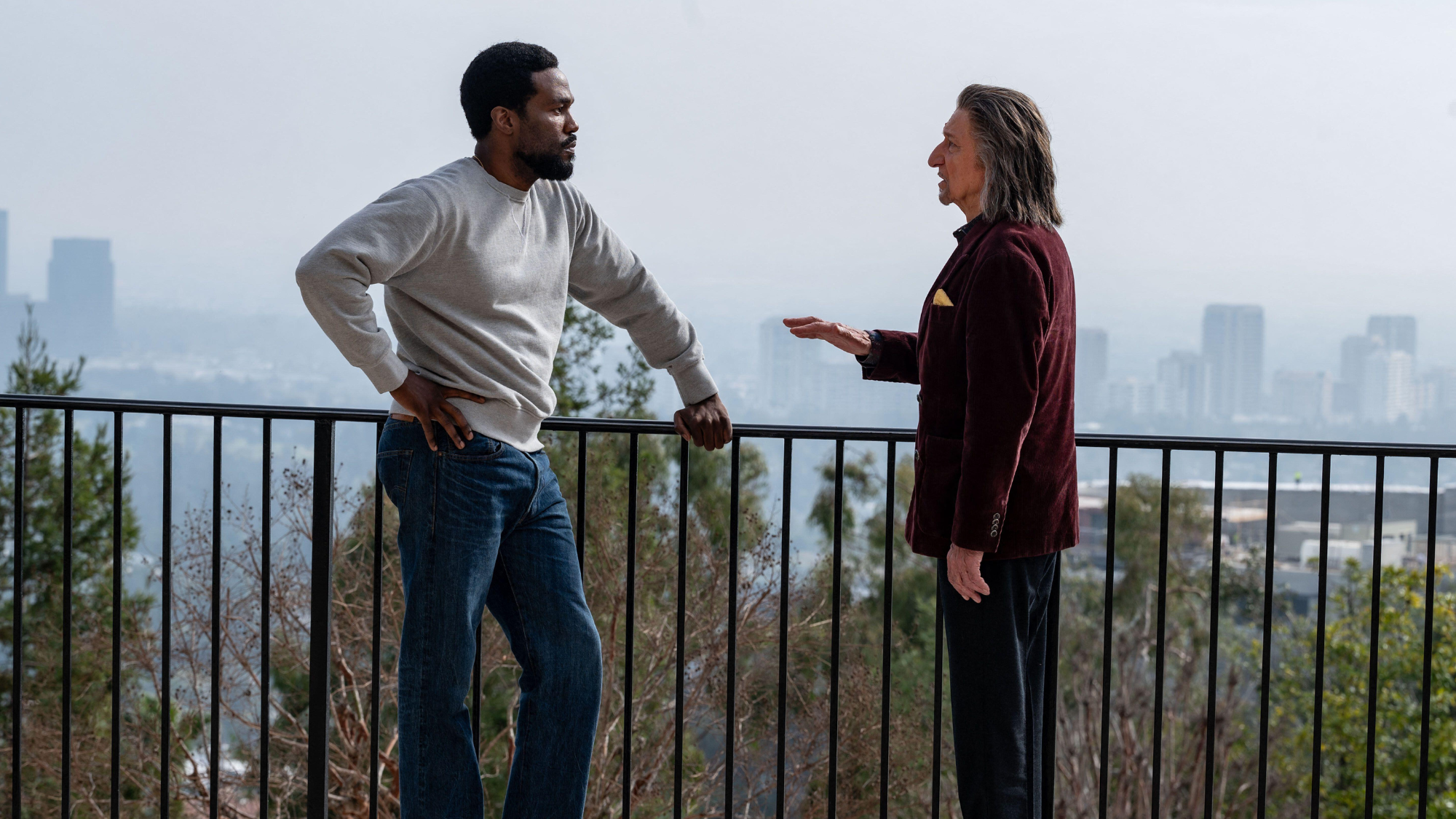When actors become brands, fans become disillusioned
What happens when the side hustles outshine the performances?


A free daily email with the biggest news stories of the day – and the best features from TheWeek.com
You are now subscribed
Your newsletter sign-up was successful
The tide of public opinion is turning against some very famous figures. While actors are often considered performers with artistic merit, some stars like Robert Downey Jr., Blake Lively and Ryan Reynolds are frequently being branded as money-hungry or too transparently concerned with their personal brands. And an increasing number of fans seem to be turned off by actors who are no longer best-known for their acting.
Why actors are becoming brands
Actors do not make money as easily as they once did. Two years ago, "Euphoria" star Sydney Sweeney revealed she could not afford to take breaks, and many celebs joined last year's Hollywood strikes to protest how "amid the rise of streaming services," residuals have "significantly diminished," said CNN.
To supplement their income, many celebs sell their own products, which is less of a liability than "attaching one's name to a company that may misbehave or a product that may have quality issues that are out of the actor's control," Olav Sorenson, a chair of entrepreneurial studies at UCLA's Anderson School of Management, said to the Los Angeles Times.
The Week
Escape your echo chamber. Get the facts behind the news, plus analysis from multiple perspectives.

Sign up for The Week's Free Newsletters
From our morning news briefing to a weekly Good News Newsletter, get the best of The Week delivered directly to your inbox.
From our morning news briefing to a weekly Good News Newsletter, get the best of The Week delivered directly to your inbox.
Actors like Gwyneth Paltrow (her brand: Goop) and Selena Gomez (Rare Beauty) have become as famous for their lucrative side hustles as they are for the art form that catapulted them to stardom. And the trend is gaining steam. "Nearly 60% of all celebrity brands" were "founded in the last six years, and more than a third of modern celebrity brands were launched in 2020 or later" said the Times. Actors also "make up the biggest group of retail business owners in the entertainment industry."
The recent controversies
While Downey Jr. only recently launched his own business — Happy, a coffee company — he became a brand unto himself long ago thanks to his role as Marvel's "franchise crown jewel," said Variety. Downey Jr. was among the first serious actors to join the MCU as Iron Man in 2008 and has since appeared as the character in 10 films. He legitimized the notion of actors as comic book heroes, and "when other Oscar nominees or respected indie stars started signing up," it "wasn't so shocking," said RogerEbert.com.
Then last month, it was announced Downey Jr. — fresh off his first Oscar win for "Oppenheimer," which seemed to herald a return to more thoughtful roles — was instead returning to the MCU to play Doctor Doom, earning upwards of $80 million. This seemed an egregious amount to pay one person, especially with the film industry in dire straits. "His enormous payday struck a nerve with some members of the entertainment industry," said Yahoo Entertainment. Tyler Scruggs, a costume production assistant, contrasted Downey Jr.'s offer with his own paycheck of $12.50 an hour for "Black Panther: Wakanda Forever."
Married power couple Reynolds and Lively are also feeling the heat. Reynolds, who plays snarky superhero Deadpool in Marvel's new release "Deadpool & Wolverine," has "long abandoned any attempts to be a real actor," said The New York Times. He is focused instead on building his empire, doing ads for everything from Mint Mobile to dating website Match.com. Reynolds is "something of a master of shameless cross-promotion," the Times added. Players from Wrexham A.F.C., the soccer team Reynolds co-owns, have a cameo in "Deadpool & Wolverine," plus fans "can buy limited-edition bottles of Aviation Gin, another Reynolds enterprise."
A free daily email with the biggest news stories of the day – and the best features from TheWeek.com
Lively has been similarly criticized for using the release of her new movie, "It Ends with Us" (based on a popular Colleen Hoover novel), to promote her new hair care line, Blake Brown. Her drinks labels, Betty Booze and Betty Buzz, also released cocktails themed around "It Ends With Us" that featured Reynolds' gin. "Lively has transformed the project into film-as-commerce," said the Times. The movie is about a woman in an abusive relationship, yet Lively's approach to press has been described as fashion-centric, bubbly and arguably tone deaf.
'This can't be the future of Hollywood'
These actors have "fully embraced a new kind of superstardom, wherein a creative project isn't just a creative project but a merchandising opportunity, one synergized for maximum profitability," said Adam White at The Independent. Clearly, many fans disagree with the trend of self-promotion at any cost. For example, "large swaths of the audience have decided to turn their backs on [Lively]," said The Cut, and on Instagram, there are "hundreds of angry comments suggesting that Lively has misread the room," said White.
"This can't be the future of Hollywood — our best movie stars treating filmmaking as one quadrant of a wider business plan," White added. These actors "should be the anomaly and certainly not the blueprint."
Anya Jaremko-Greenwold has worked as a story editor at The Week since 2024. She previously worked at FLOOD Magazine, Woman's World, First for Women, DGO Magazine and BOMB Magazine. Anya's culture writing has appeared in The Atlantic, Jezebel, Vice and the Los Angeles Review of Books, among others.
-
 The cabbage comeback
The cabbage comebackThe Week Recommends Gone are the days of ‘WWII boiled cabbage recipes’. The humble vegetable is enjoying a resurgence
-
 Fine food on a budget
Fine food on a budgetThe Week Recommends Excellent value eateries with the Michelin inspectors’ seal of approval
-
 Where to go for the 2027 total solar eclipse
Where to go for the 2027 total solar eclipseThe Week Recommends Look to the skies in Egypt, Spain and Morocco
-
 Microdramas are booming
Microdramas are boomingUnder the radar Scroll to watch a whole movie
-
 Are Hollywood ‘showmances’ losing their shine?
Are Hollywood ‘showmances’ losing their shine?In The Spotlight Teasing real-life romance between movie leads is an old Tinseltown publicity trick but modern audiences may have had enough
-
 Film reviews: ‘Wuthering Heights,’ ‘Good Luck, Have Fun, Don’t Die,’ and ‘Sirat’
Film reviews: ‘Wuthering Heights,’ ‘Good Luck, Have Fun, Don’t Die,’ and ‘Sirat’Feature An inconvenient love torments a would-be couple, a gonzo time traveler seeks to save humanity from AI, and a father’s desperate search goes deeply sideways
-
 The biggest box office flops of the 21st century
The biggest box office flops of the 21st centuryin depth Unnecessary remakes and turgid, expensive CGI-fests highlight this list of these most notorious box-office losers
-
 The 8 best superhero movies of all time
The 8 best superhero movies of all timethe week recommends A genre that now dominates studio filmmaking once struggled to get anyone to take it seriously
-
 Josh D’Amaro: the theme park guru taking over Disney
Josh D’Amaro: the theme park guru taking over DisneyIn the Spotlight D’Amaro has worked for the Mouse House for 27 years
-
 Wonder Man: a ‘rare morsel of actual substance’ in the Marvel Universe
Wonder Man: a ‘rare morsel of actual substance’ in the Marvel UniverseThe Week Recommends A Marvel series that hasn’t much to do with superheroes
-
 Heated Rivalry, Bridgerton and why sex still sells on TV
Heated Rivalry, Bridgerton and why sex still sells on TVTalking Point Gen Z – often stereotyped as prudish and puritanical – are attracted to authenticity
